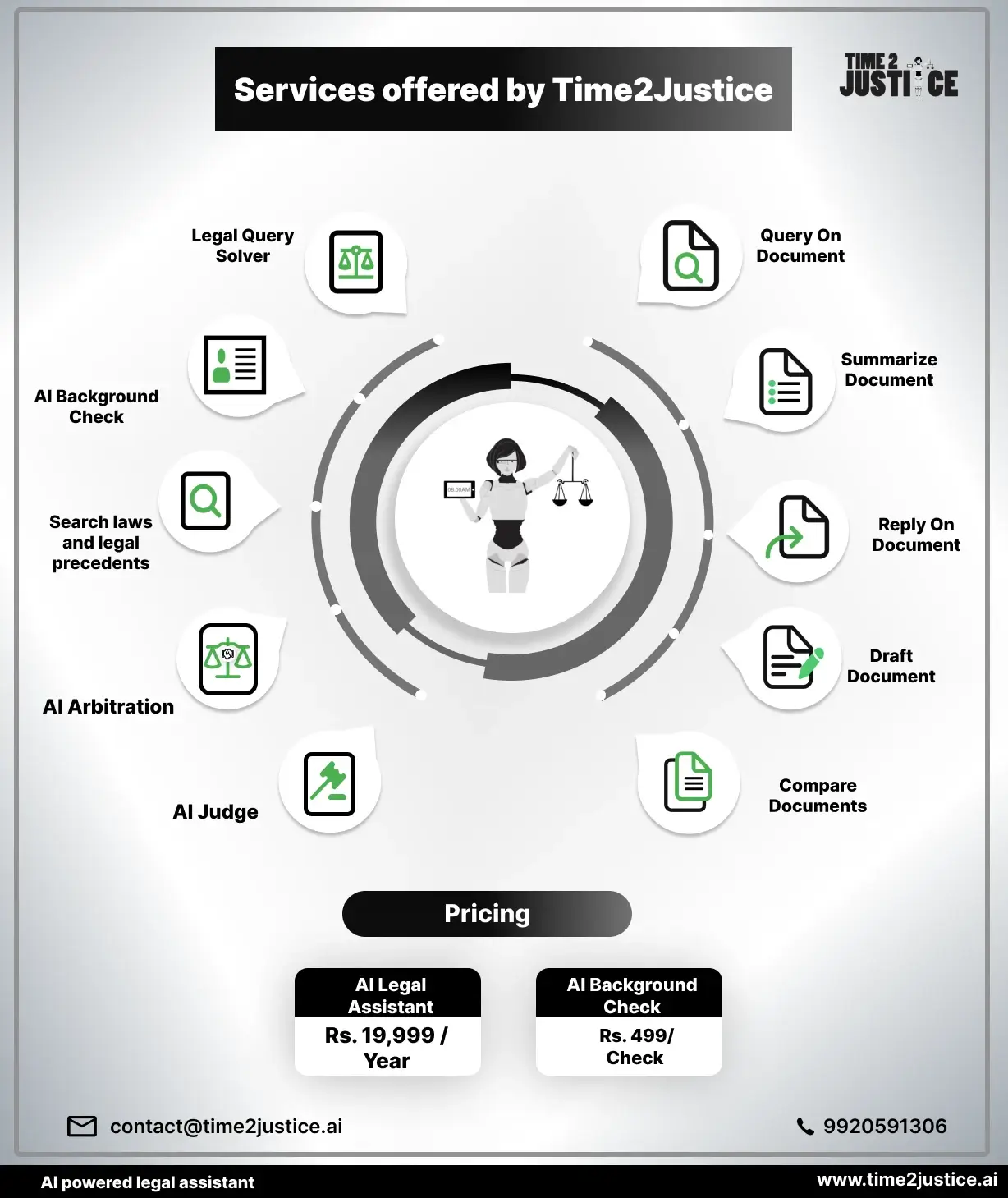Time2Justice AI Legal Platform
The Right2Vote team is building technology to speed up the judicial process. The technology platform aims to speed up the justice process by technology intervention at different stages of the justice process.
Right2Vote Infotech Private Limited in on a mission to make a better India and a better world.
Our flagship project - Right2Vote, is all about ensuring that no citizen is denied his right to vote. To ensure the right to vote for all, we are using the power of internet and technology to ensure that people can vote from anywhere and anytime in a matter of seconds. We are also leveraging on new technological developments like Aadhaar based biometric database to make it 100% secure and full proof.
Similarly, we are also working on strengthening another pillar of democracy - JUDICIARY.
Today, the biggest problem with the Indian judiciary system is that it's very slow. As per one BBC study, more than 3 crore cases are pending in Indian courts and at current pace it will take more than 300 years to clear the backlog even if no new case is added!
As the famous legal maxim says "Justice delayed is justice denied".
Hence, we have taken it upon ourselves to expedite the time required to get justice in Indian judicial system and that's why we have named this project "TIME2JUSTICE".
Time2Justice is a project where, with the help of technology, we aim to speed up the Indian judiciary. Few technological interventions would be simple use of the internet and modern communication tools to speed up the process of communication. Surprisingly, Indian courts are still using 20th century communication tools.
Other technological interventions would be much more cutting edge using Artificial Intelligence (AI), Machine Learning (ML), Big Data & Analytics. A judge is supposed to not get swayed by emotions and base his decision on facts and evidence of the case. Machines can do that better than humans as machines do not have emotions. Also, machines can do that faster.
We also aim to use Virtual Reality (VR) and Augmented Reality (AR) apart from commonly used internet-based video conferencing tools to enable online courts with various participants joining online. This will substantially save time, cost and effort for all parties involved. It will also make the judicial process faster as hearing dates would not be deferred due to lawyer's calendar issues.
Can we have courts with only robot judges? Can we have 24*7*365 courts? Can we automate the judiciary process at least in lower courts?
There are many low hanging fruits and there are many difficult challenges. But the most important thing is to recognize the need to speed up the judiciary and take actions towards that goal. Our project "TIME2JUSTICE" is our first step towards that goal.



